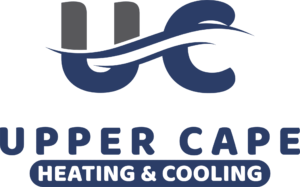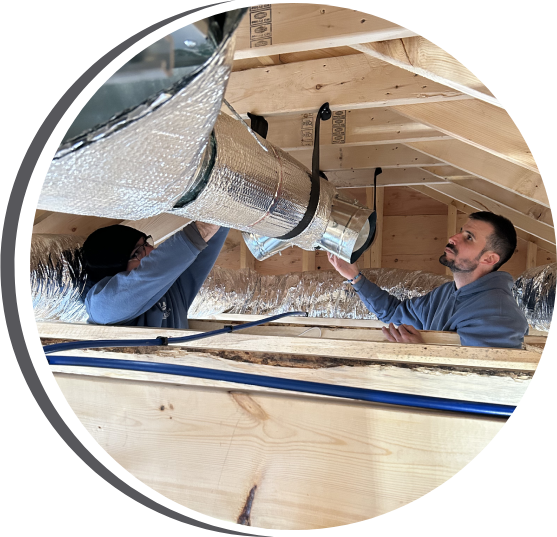HVAC stands for Heating, Ventilation, and Air Conditioning. It encompasses the systems responsible for regulating and circulating heated and cooled air in various settings, including residential and commercial buildings, ranging from homes and offices to indoor stadiums. We offer following service for air conditioners, furnaces and water boilers.
Traditional Heating and Cooling Systems
HVAC Service on Cape Cod
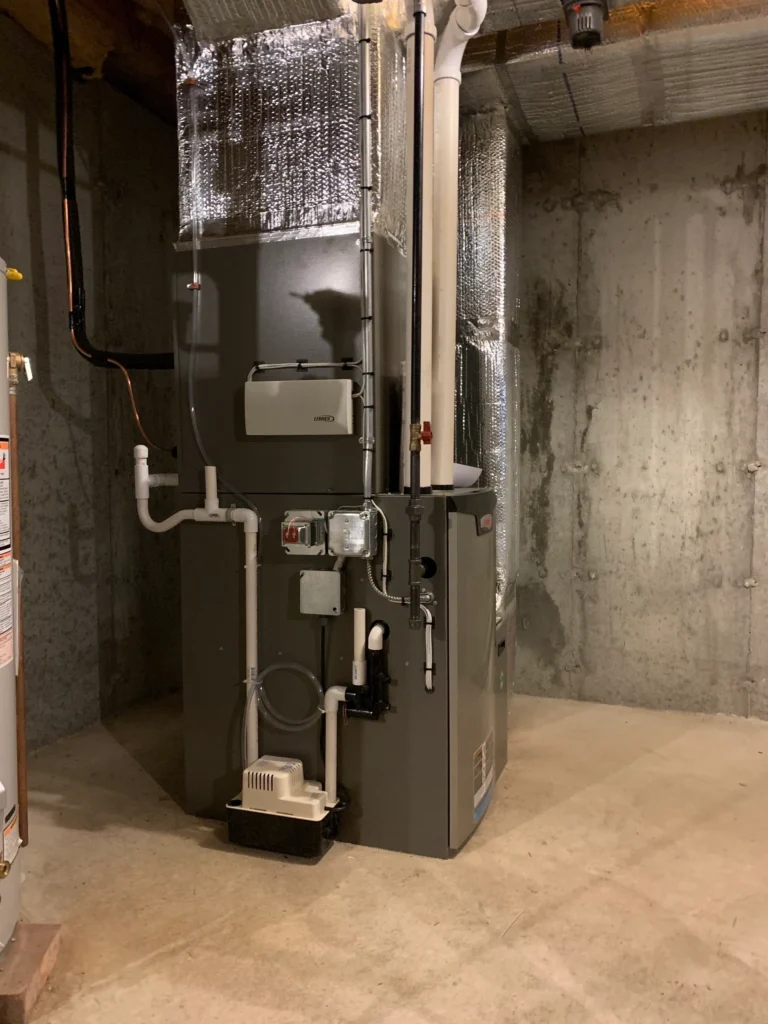
Air Conditioning (A/C) Service
Keep your home cool and comfortable with our comprehensive A/C services. We can install or replace your air conditioner or provide quality repair service. We offer thorough inspections, cleaning, and maintenance to ensure your air conditioning system operates at peak efficiency, preventing costly breakdowns and reducing energy bills.
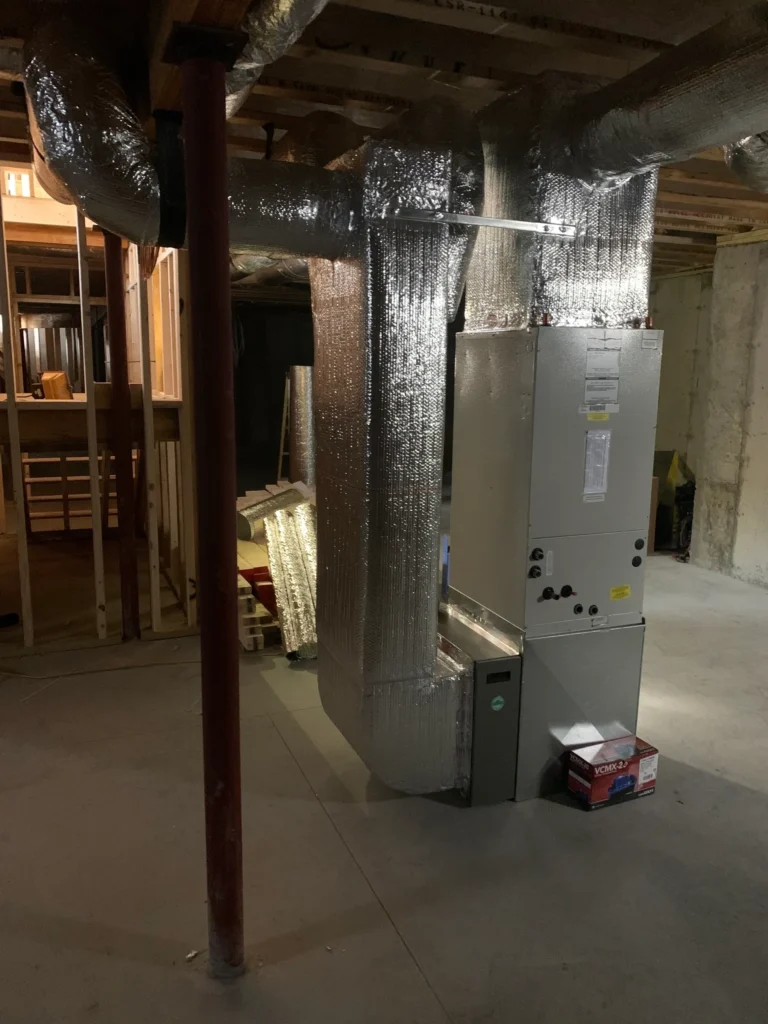
Furnace Service
Professional installation of new furnace systems on Cape Cod, as well as comprehensive service. Ensure your home stays warm and safe during the colder months with our reliable furnace services. Our team performs detailed inspections, cleaning, and adjustments to maintain your furnace’s performance, extend its lifespan, and enhance energy efficiency.
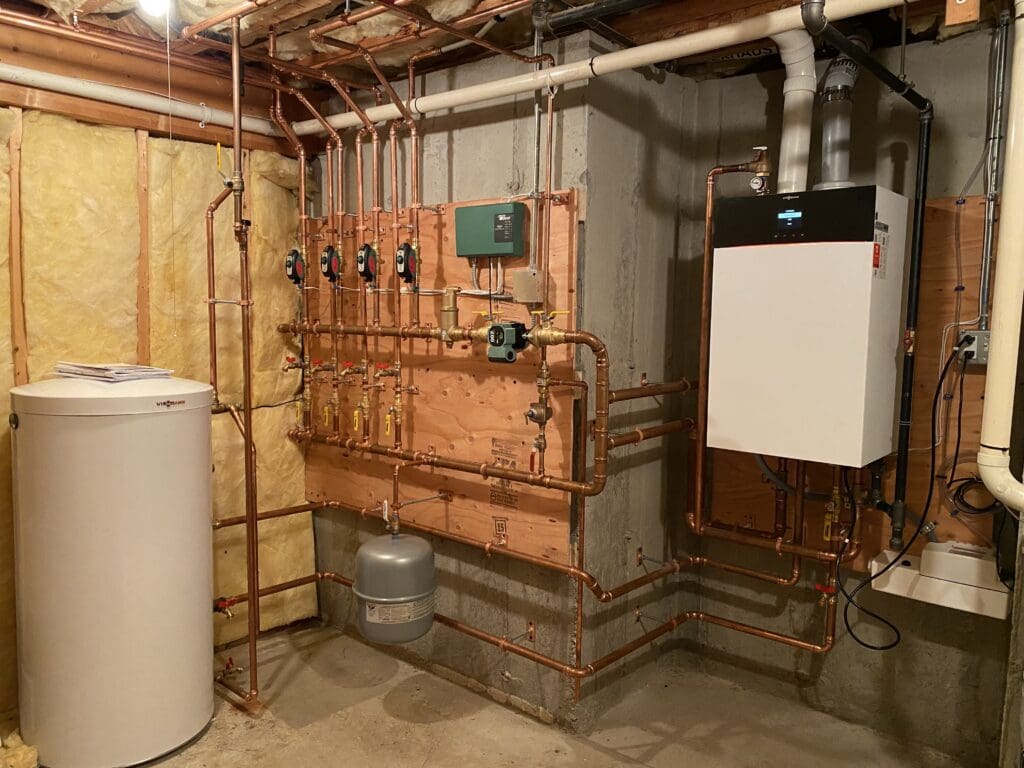
Boiler Service
We offer boiler installation, repair and maintenance. You can rely on us to maintain the reliability and efficiency of your heating system with our professional boiler services. We provide complete inspections, cleaning, and maintenance to keep your boiler running smoothly, preventing sediment buildup and ensuring consistent heating.
5 Signs It’s Time To Replace Your HVAC System
Recognizing when to replace your HVAC system is crucial for maintaining a comfortable and efficient home environment. You don’t want to lose air conditioning in the middle of July or heat in a cold blizzard in February. Here are five key indicators that it may be time to invest in a new HVAC system:
- Age of the System:
- Typical Lifespan: Most HVAC systems, including air conditioners and furnaces, have a lifespan of 10-15 years. If your system is approaching or has exceeded this age range, it’s wise to consider a replacement. Older systems are less efficient and more likely to experience frequent breakdowns.
- Efficiency Decline: Over time, wear and tear can significantly reduce the efficiency of your HVAC system. An aging system often struggles to maintain optimal performance, leading to higher energy consumption and increased utility bills.
- Frequent Repairs:
- Rising Repair Costs: If you find yourself frequently calling for HVAC repairs, the costs can quickly add up. Multiple repair visits not only strain your budget but also indicate that your system is nearing the end of its useful life.
- Diminishing Returns: Investing in a new HVAC system can be more cost-effective in the long run compared to continually repairing an old, failing system. A new unit will offer more reliability and fewer unexpected repair costs.
- Inconsistent Temperature and Comfort Issues:
- Uneven Heating and Cooling: If certain areas of your home are too hot or too cold while others remain comfortable, your HVAC system may be struggling to distribute air evenly. This inconsistency is a common sign of an aging or improperly sized system.
- Poor Airflow: Weak or limited airflow from your vents can indicate a failing compressor or issues with the ductwork. Inconsistent temperatures and poor airflow reduce overall comfort and can affect your indoor air quality.
- Increased Energy Bills:
- Rising Costs: A sudden spike in your energy bills without a corresponding increase in usage often points to an inefficient HVAC system. As systems age, they lose efficiency and require more energy to maintain the desired temperature.
- Energy-Efficient Upgrades: Modern HVAC systems are designed to be much more energy-efficient, with advanced technologies and higher SEER (Seasonal Energy Efficiency Ratio) ratings. Upgrading to a new system can result in substantial energy savings and lower utility bills.
- Excessive Noise and Strange Odors:
- Unusual Sounds: Grinding, squealing, or rattling noises from your HVAC system can indicate serious internal issues. While some problems can be repaired, persistent or loud noises often signal that a replacement is necessary.
- Strange Smells: Unpleasant odors coming from your HVAC system, such as burning smells or musty scents, can indicate issues like burnt-out components or mold growth within the unit or ductwork. Addressing these problems with a new system can improve both efficiency and air quality.
Regular maintenance can extend the life of your HVAC system, but eventually, even the best-maintained units will need to be replaced. If you’re experiencing any of the above signs, call Upper Cape Heating and Cooling to schedule a consultation. Upgrading to a new, energy-efficient HVAC system can improve your comfort, reduce energy costs, and enhance your home’s air quality.
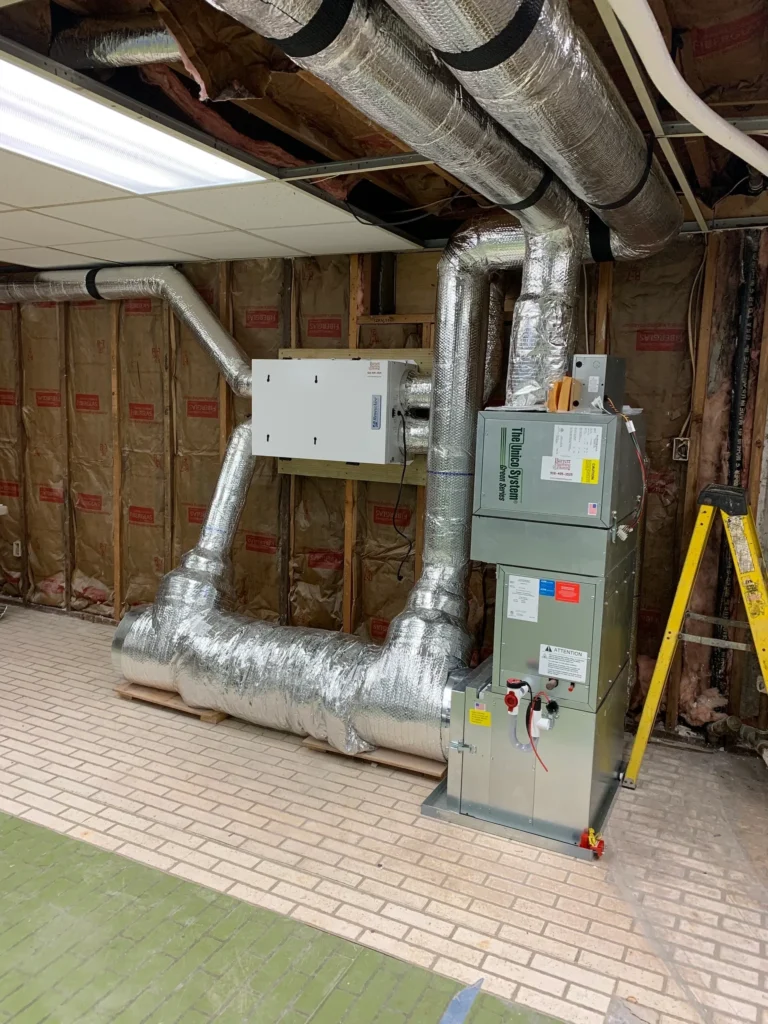

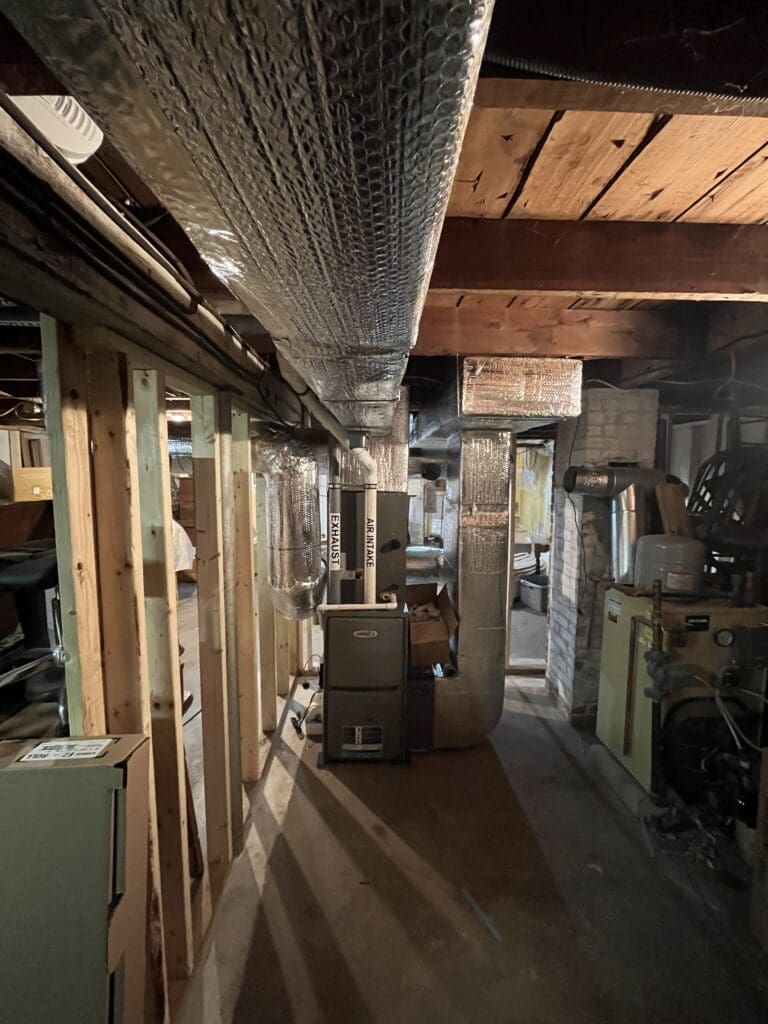
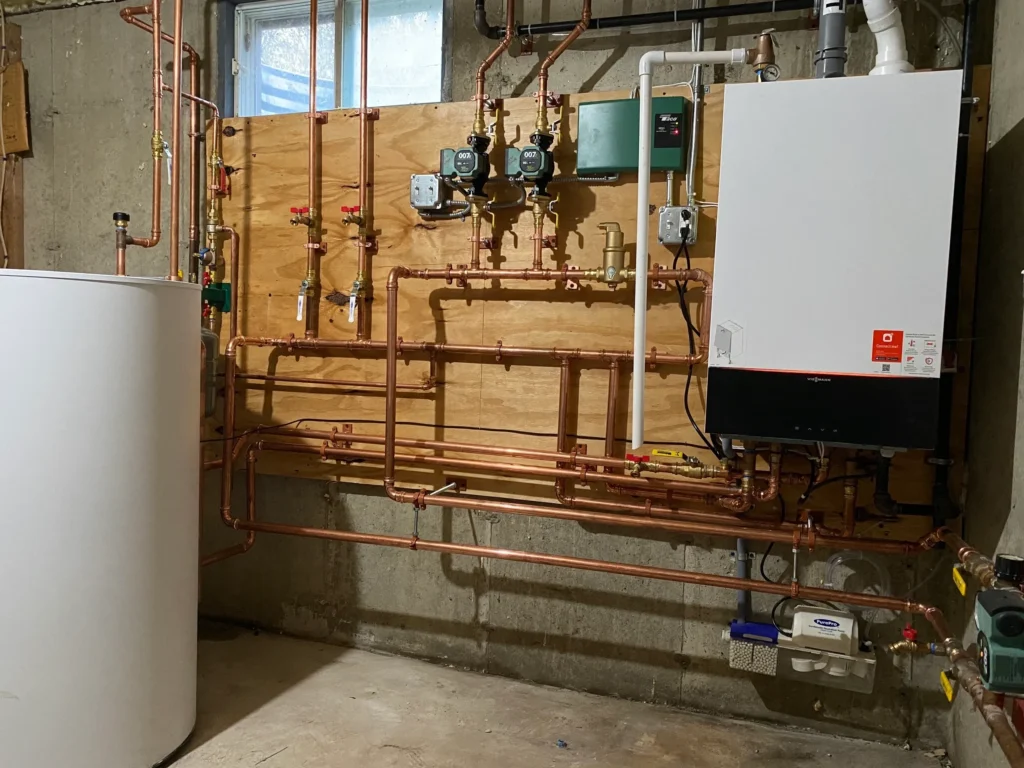
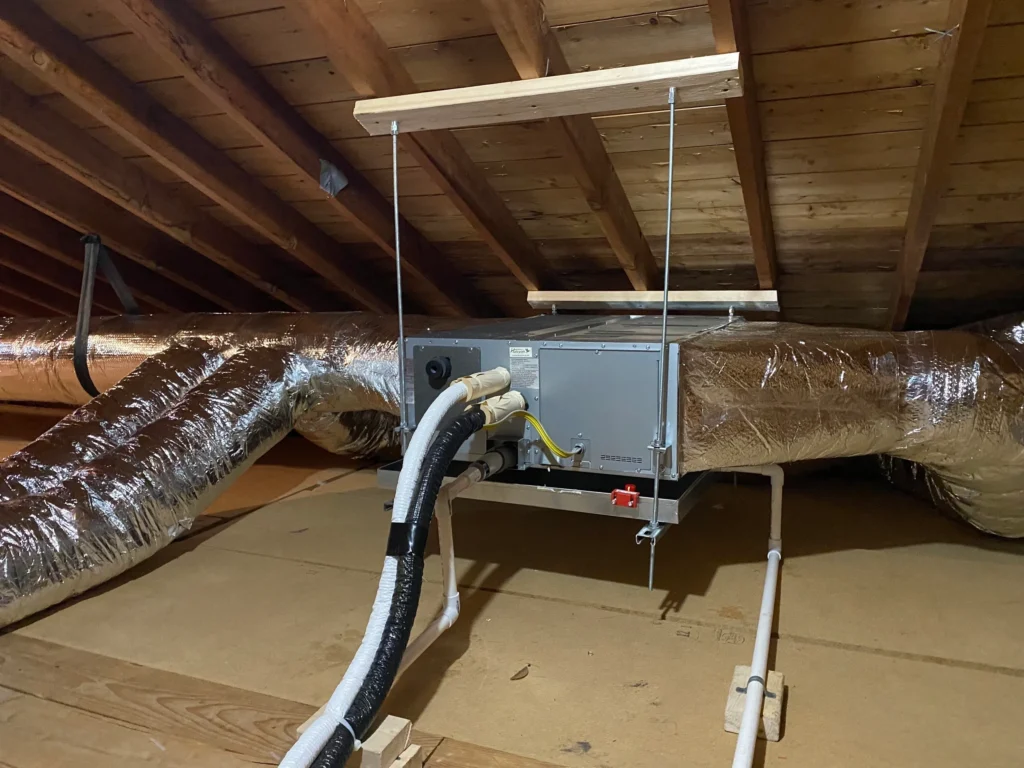
Expert HVAC Services on the Upper Cape
Elevate Your Comfort With Reliable Solutions From a MassSave® Approved Contractor.
It’s recommended to change HVAC filters every 3 to 6 months, depending on factors like filter type, indoor air quality, and usage. Dirty filters can reduce system efficiency and indoor air quality.
The lifespan of an HVAC system varies depending on factors like maintenance, usage, and type of system. On average, HVAC systems can last between 10 to 15 years with proper care.
While some HVAC maintenance tasks can be DIY, installing a new HVAC system typically requires professional expertise to ensure proper sizing, installation, and compliance with building codes.
Consider factors like the size of your home, climate, energy efficiency ratings, budget, and desired features when choosing an HVAC system. Consulting with an HVAC professional can help you make the best decision for your needs.
Zoning allows you to control temperatures in different areas or “zones” of your home independently. It involves using multiple thermostats and dampers to direct airflow where needed, improving comfort and energy efficiency.
